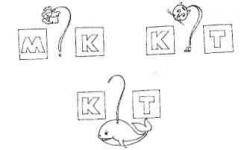Many people constantly say that they could use an extra 24 hours in the day. But this is something from the realm of fantasy. But it is quite possible to make sure that our time is spent rationally. But to do this, you need to stop doing some obvious and not so obvious actions.
1. Want to help everyone around you
Helping people is certainly necessary if you care about their well-being. But you cannot sacrifice yourself and put your interests, responsibilities and emotional health on the altar of relationships. By wasting yourself on helping everyone you meet, you burn out mentally and lose strength. Which could lead to something really interesting and necessary.
If you spend more time on others than on yourself, in most cases it’s time to at least think about it. And as a maximum, start about your condition and peace of mind.
2. Wait for the right moment
Let's remember the famous Soviet sideboard, in which the best dishes in the house were stored - a source of pride for the owners. Perhaps someone still has something similar in their apartment. Now remember: how often did someone use this utensil? Did they get it at all? Most often, the sets were saved until “better times.” Which, as a rule, never came.
In the same way, most people have their desires for “beautiful things far away.” They come up with conditions: when I do this, then... But at this rate, what I want may never come true. If you long for something, strive for it with all your soul, then act. Best time- it is now.
3. Talk about goals without following up.
This point smoothly follows from the previous one. Sharing plans and ideas is sometimes even useful, it inspires. But it’s bad if nothing goes beyond talking. As a result, you are wasting your and other people's time.
Before you say anything, make sure that you are not just talking and that you really intend to carry out your plans. Otherwise, in the future you may well be reminded of this dialogue, and you will find yourself.
4. Go to shopping centers and online shopping sites when there is no money for purchases
If the budget is set and bonuses at work are not expected soon, this activity is pointless. You will only get upset once again and sigh heavily.
Of course, there is an option when you are looking for something to start saving for. But let's face it: most of the time we just stare.
5. Compete with others
If you have a desire to become a professional in some field, then this is commendable and there is nothing to worry about. Spending time on self-development and improving your life is the right thing to do. But if you compete with your acquaintance or friend about who has a better life, this is a pointless exercise.
You don’t have to prove anything to anyone or do anything, acquire something, just to rub someone’s nose. It's a dead-end situation that forces you into a lifestyle that probably isn't right for you. And all this wastes money, effort and time that you could spend with great benefit and pleasure.
6. Taking insults for constructive criticism
A response from the outside should help you look at something from a different angle and expand your vision. If in response you receive empty negativity, you must not give up, much less overreflect. Thus, you are simply wasting your time, and the “critic” at this moment continues to live without remembering you.
7. Agree to something so as not to offend the person
Caring about the feelings of others is not a bad thing at all. But if it turns into spinelessness and inability to refuse, then first of all you are doing something bad to yourself.
Of course, if a person really asks for company and has gone somewhere with you more than once, why not support him? But if such a system only works one way (not yours), stop thinking about other people's feelings. Do what is interesting and important to you. And don’t waste time coming up with excuses, because saying “I don’t want to” is much simpler and more honest.
Communicate with knowledgeable people, watching training videos, reading books, articles and highlighting something new and useful for yourself is certainly correct. But it is important to remember that not everyone good advice suits everyone equally. You can spend a lot of time getting used to something, but in the end life will not improve, but will only get worse. For example, waking up early is not suitable for everyone. And although many people advise getting up early in the morning, this does not mean that you will immediately become more productive and that this will help you. There is a possibility that everything will turn out differently.
Therefore, approach experiments carefully. Think about what you are going to implement, and do not rush to try everything that is recommended to you. Listen to yourself, your body and sensations. They will tell you how to act.
9. Doing something with a superficial knowledge of the subject
Most often, such a plot has two development options. Either you do it crookedly and askew, or you just quit without finishing it. The third option, where you succeeded, is, alas, the rarest.
You will save a lot of time if you study the subject thoroughly before you begin. If corrections have to be made, they will be minimal. Unlike the situation when you didn’t figure it out and immediately started completing the task. And this applies to everything you can take on.
Sometimes it is difficult to admit to yourself your desires, but it must be done. And it is not at all necessary to look for confirmation or approval in someone’s words. Moreover, they may disagree with the interlocutor, and you will hear something that is not what you really want. Because of this, doubts may arise and, as a result, you will spend more time achieving what you want.
11. Leaving trash behind when cleaning
Thus, you most often postpone the inevitable and doom yourself to repeated cleaning and another waste of time.
If an item has not been useful before, the likelihood that it will suddenly be needed tends to zero. Don't do double work and throw away trash without regret. If the item is in good condition and it’s a shame to throw it away, sell it or give it to someone who wants it.
12. Buy groceries for one or two days
We won’t talk about the importance of the shopping list, that’s obvious. But it’s also important to look ahead and buy non-perishable food items in excess. In the future, this habit will help you not to go shopping every day. By the way, you can also use grocery delivery to your home. This will save a lot of time and effort.
13. Identify your illnesses via Google
Yes, reading and studying expert comments is useful. However, diagnosing yourself is, to put it mildly, a so-so idea. Moreover, in such cases we do not limit ourselves to just studying the articles. After reading, people usually turn to self-medication, which in itself is dangerous.
If you are sick with something, you should go to the doctor, and not waste time and money going to the pharmacy for something that you may not need. Remember that when you self-medicate, you are missing out on time to fight the real disease that a doctor could diagnose you with.
Sometimes this is critical.
14. Going to the store without making sure that the product is in stock
There are times when the website says that an item is in the store, but on the spot it turns out that it has been sold. But this situation is quite rare. More often than not, people simply go to the store, hoping that they will take home the desired purchase. However, the outcome of the trip is not always happy. It’s better not to waste and always look in advance so as not to be upset later.
Guys, we put our soul into the site. Thank you for that
that you are discovering this beauty. Thanks for the inspiration and goosebumps.
Join us on Facebook And In contact with
Do you have enough time in each day to do everything you have planned? I don't. I began to read less often, gave up studying English, and can’t start exercising regularly. And all because, for inexplicable reasons, there was no room in my schedule for these things.
I didn’t want to put up with this state of affairs, so I decided to stop wasting time on nonsense and leave it for more important tasks. For readers website I'll tell you how it was.
Before I started managing my time, I tried to figure out where it was going and ended up with amnesia
No, I didn’t click the timer button every time I went into the bathroom or waited for the elevator, but I tried to determine how much time the most important things that make up the day took: work, cleaning, cooking, breakfast-lunch-dinner, activities with the child and so on.
For example, it took me 3 hours to write a draft of one article that day. It takes a little less than an hour and a half to prepare a multi-course dinner. But what did it take 4 hours?
I added up the amount of time it took to do all these things, added an hour for daily stuff, and subtracted it from my day, which is typically about 16 hours long. For clarity, I made a graph that should show where the time is spent.
Since I work remotely, I can stir borscht with one hand, fight with my son with swords with the other, and answer work messages with my foot. I understand that office work takes much more time, but for those who will do the same analysis, I advise you not to color all 9 working hours in green, but to divide them into separate tasks.
And that’s when sudden memory loss overtook me. It turned out that on each day it took me from 3.5 to 5 hours for something unknown. On the first day, I really couldn't remember what I was doing for most of it. The next day I began to be more attentive to all my actions.
It turned out that some portion of this time was spent on important and pleasant little things:
- chat with family;
- strum the ukulele;
- review vacation photos;
- or just close your eyes and relax.
But all this clearly did not take 5 hours, the rest of the time was spent on less useful things:
- I endlessly put things back in their places;
- trained my thumb while scrolling through social media feeds;
- corresponded about nothing;
- I walked around the hypermarket stupidly and stood in a long line, etc.
To spend less time on social networks, I changed my phone. Goodbye convenient messengers, long live calls and SMS
I put my smartphone in the closet on the top shelf, and it was replaced by a push-button device, designed for 2 SIM cards. In addition to basic applications, Facebook, Twitter and some kind of Bluetooth chat were pre-installed.
Just as a smoker’s hand continually reaches for a cigarette, so my hand automatically clicked on the first two applications in the menu, trying to enter them. However, the phone gave me a “connection error” every time, not letting me into those applications where my time would be stolen by long threads, useless posts about politics, hundreds of thousands of memes and comments on them.
However, in order to stay in touch with friends and family, I set aside time to respond to messages
Most correspondence with friends and relatives begins with mutual greetings, questions like “How are you?” or “What are your plans?” We are used to breaking information into several messages, although in some cases one, and a small one, would be enough.
It turned out that it is enough to respond to messages three times a day and using computer versions of instant messengers. By the way, this approach disciplined not only me, but also my interlocutors: the messages became more specific.
Okay, at first it infuriated my interlocutors and only then disciplined them. But the result was worth it.
I also made to-do lists and kept them in a notes app on my computer.
For example, this is how my list of non-work related tasks begins today. For work - a separate note.
I'm sure everyone is familiar with to-do lists. It's really old but very effective method plan your everyday life and don’t waste time thinking like “What else should I have done?” And putting a tick next to a completed task, especially a difficult one or one that had to be put off for a long time, is a special thrill.
Now it's time to deal with constant cleaning
I can't say that my home is a mess, but there are certain areas that quickly become cluttered. For example, the bed on which I throw my bag and clothes when I come home. A laundry basket, the lid of which does not always open and things are piled on top, a work table on which everything you want is placed and placed, and then it gets in the way terribly.
In general, the conclusion suggested itself: you need to start looking after yourself and immediately putting things where they belong. It was not difficult to accustom yourself to this. Getting my child and husband used to this has been much more difficult, and the process is not yet complete.
In the meantime, it's time to deal with long shopping trips. I understand that products are arranged in supermarkets in such a way that the buyer will see as many products as possible on the way to the bread or milk rack and, perhaps, buy something that he did not need in the first place . And in this sense, I was very aware: I often fell for the bait of marketers and brought to the checkout a lot of goods that were not on the shopping list.
So why did I decide to tell you about this experience? For two reasons:
- Firstly, it cannot be said that I achieved nothing; I managed to save some time. And now - eureka! - I returned to studying English.
- Secondly, all of the above methods had a great influence on me. The constant racket has disappeared from my head: tasks that need to be kept in mind, frequent smartphone alerts, news that actually doesn’t matter to me. Every day became much more enjoyable. And this result is quite worthy of attention.
Many of us in last years began to notice something was wrong with the way time passed. Days run like hours, weeks run like days, months run like weeks, and years run like months. The speed of time is such that a person has less and less time to do. It would seem that the day has just begun, before you even have time to look back, it’s night outside!
And here’s what’s typical: previously, only older people noticed the fact that time began to flow faster for them over the years, but now the situation with the feeling of the transience of time has changed: even teenagers and children began to complain about its lack.

Speaking about modern children, the famous Moscow priest Alexander Shumsky told the Russian Line news agency: “Children’s sense of time is changing. As children, it seemed to us that time flows very slowly, but for an adult, by definition, time flows quickly. I ask young children, but they say that time flies very quickly. My grandson started first grade, and he says that time flies very quickly.”
The priest is perplexed: why does this happen? He speculates: “Either the substance of time is changing objectively, because it is the most incomprehensible substance, or is this impression due to information overload? But in any case, time subjectively passes faster than before.”
And the monks from Athos, while conducting night prayer, noticed one strange thing. Since ancient times, they had a special prayer rule: in a certain period of time they had to read a certain number of prayers. And so every day, strictly by the hour.
Previously, the monks managed to completely complete the entire program overnight, and before the early morning service they even had a little time to rest. But nowadays, with the same number of prayers, the elders no longer have enough night to finish them.

An equally amazing discovery was made by the Jerusalem monks serving in the Holy Land. It turns out that for several years now the lamps at the Holy Sepulcher have been burning longer than before. Previously, oil was added to large lamps at the same time, on the eve of Easter. Within a year it completely burned out. But now, for the umpteenth time, there is still a lot of oil left before the main Christian holiday. It turns out that time is ahead even physical laws burning!
Various sources claim that in real rather than calendar duration, if we take the old time that has not changed for centuries as a standard, modern days last only 18 hours compared to the previous 24 hours.

It turns out that every day we don’t get about 6 hours less and that’s why we constantly don’t have enough time, because the days fly by at an accelerated pace. The shortening of the day was especially noticeable at the turn of the 20th and 21st centuries.
An interesting explanation of the variability of time was given by studying the chronosphere, famous physicist, doctor technical sciences, corresponding member Belarusian Academy Sciences, the late Viktor Iozefovich Veynik. He put forward scientific hypothesis, according to which time, like physical phenomenon, there is a material carrier - a certain substance of time, which he called the “chronal field”.
During the scientist’s experiments, an electronic wristwatch placed in an experimental setup he created could slow down or speed up its speed.
Based on his experiments with the matter of time, Veinik concluded that there is a time field on the planet - the chronosphere, which controls the transition of the past to the future.
The scientist believed that time is also represented at the level of microparticles and called these microparticles chronons - quanta of physical time. And the field in which these microparticles of time exist is chronal. He believed that the chronal potential (chronal) decreases with time. For example, a person has the most great importance a newborn child has chronala, and with age it decreases many times. For example, in infants all metabolic processes occur much more intensely than in adults: per kilogram of weight the need for nutrients 2-2.5 times higher, oxygen consumption - 2 times. For them, all processes proceed quickly - babies grow quickly, gain weight quickly, quickly learn to understand the world, and the life around them, accordingly, seems very slow to them.

But that's not all. It turns out that not only people age. Of particular interest is the problem of reducing the chronal (aging) of planets, stars, galaxies and the entire Universe. Here we will pay attention only to the process of natural aging of the Earth. It is not developing at all, as many people think, but is deteriorating. TO today her chronal, which determines the intensity of all processes on her, has greatly decreased.
In ancient times, at a high chronal, life on Earth was in full swing: dinosaurs were the size of a three-story house, grass was like modern trees, the process of radioactive decay of the atom was extremely intense. Now everything has become old, although there are still some places on earth with a slightly higher chronal, for example, Sakhalin Island, where burdocks are like large two-meter umbrellas, and the grass is like shrubs. The French tried to transplant this “gigantomania” to themselves, but after a year everything degenerated - the wrong chronicle.

On our planet, the speed of life processes is steadily decreasing, which is why the passage of time is accelerating for everything on Earth!
But let's return to the theory of temporal acceleration. Why did time on Earth begin to run faster? It is known that in order to slow down the passage of time, you need to increase the speed. Therefore, to speed up time, the speed must be reduced. That is, our planet had to reduce its speed.
American astrobiologists D. Brownlee and P. Ward came to the conclusion that the Sun is “to blame” for the decrease in the speed of the Earth’s movement. Our star is a young growing star. Expanding, the Sun gradually absorbs our planet. Year after year, revolution after revolution, the Earth continues to change its orbit and move closer to the Sun. If we compare solar system With a model of an atom, where electrons rotate around the nucleus at a certain distance from each other, you can understand how the speed of the Earth’s movement has decreased. Electrons that are closer to the nucleus spin slower than those that are further away from it. The closer a planet is to the Sun, the slower it will rotate around it, slowed down by a more powerful gravitational field luminaries As the speed decreases, time will speed up. It will just go faster. This does not mean that the day will become equal to 23 or 22 hours. No. The smaller orbital trajectory is compensated by the lower rotation speed along this orbit. There are 24 hours left in the day, but they are no longer the 24 hours they used to be.

THE UNIVERSE IS EXPANDING, BUT TIME... IS ACCELERATING! Researchers at the Kyiv Institute came to this conclusion. quantum physics Dmitro Stary and Irina Soldatenko during the scientific experiment, which began back in the 70s and lasted almost thirty years.
By the way, doesn’t it seem strange to you that Alexander Sergeevich Pushkin at the age of 20 was a mature man and a fully formed poet, and today 20 years is practically adolescence.
But the most interesting thing is that this conclusion of scientists not only echoes, but is also significantly expanded in the books of Anastasia Novykh.
“In the near future, humanity will encounter another phenomenon of the Universe. Due to the increasing acceleration of the Universe, due to the depletion of Allat’s power, humanity will feel a rapid reduction in time. The phenomenon will be that the conventional twenty-four hours a day will remain the same, but time will fly by much faster. And people will feel this rapid reduction in time intervals, as if physical level, and at the level of intuitive perception.
- So this will be connected specifically with the expansion of the Universe? - Nikolai Andreevich clarified.
- Yes. With increasing acceleration. The more the Universe expands, the faster time flies, and so on until the complete annihilation of matter.”
Yesterday is history.
Tomorrow is a mystery for many.
Today is the present.
Remember that time will not wait for you. Therefore, appreciate every moment of time that you have, create the future you want right now!
The disease of the 21st century is lack of time. There is not enough time for absolutely everyone. How often do we hear in response to any proposals "I have no time"? For example, clients tell me that they can’t go to time management training to learn how to manage their time and prioritize, because they don’t have time for it, pun intended...
Indeed, in our time there are so many offers and opportunities that we are simply drowning in this stream. Wanting to try a lot, achieve a lot, we understand that we can’t keep up with everything - we don’t have time to keep up with the times.
And it seems like we can't do anything about it. But this is not so, we can learn to manage time, we just have to make an effort and understand this issue.
Learn to plan!
We can see the very first example of time planning in Plato, in his ideal state. Plato suggests dividing 24 hours into 4 areas of 6 hours: 6 hours for sleep, 6 hours for leisure, 6 hours for work, 6 hours for hygiene procedures (eating, cleaning, playing sports).
Modern time management techniques are very diverse. The first technique we will look at is this is D. Eisenhower's matrix, authored by the 34th President of the United States, Dwight David Eisenhower. The essence of the Eisenhower matrix consists of 4 quadrants, divided by priority. That is, there are 4 categories into which you divide all your affairs:
- A: Important and urgent. This category should include the most important matters that require immediate implementation.
- Q: Important, but not urgent. This includes important things that can wait.
- S: Urgent, but not important. This category includes not very important matters, which, however, need urgent implementation.
- D: Not urgent or important. This group includes issues that may not be resolved at all, since they will not bring any return.
Thus, using the Eisenhower matrix, you will learn to distinguish important things from urgent ones, and you will understand which things can be completely discarded that do not bring you any benefit. As a result, learn how to properly plan your work and increase your personal productivity and effectiveness.
Franklin's Pyramid or time management using the Franklin method. The main feature of this system is the movement from the general to the specific and focus on results, i.e. achieving major life goals. The structure of Franklin's pyramid is as follows: life values, global goal, general plan, long-term plan, short-term plan, daily plan.
Using this pyramid, you will see your main goals, understand how to achieve them, and what should be done for this. Working with the Franklin technique requires a lot of effort, but it's worth it.
Self-management by L. Seiwert says that it is necessary to improve your life from yourself; without knowing yourself, it is impossible to understand others. The benefits of mastering the art of self-management are as follows:
- performing work with less time, better organization of work;
- less haste and stress;
- more job satisfaction;
- active labor motivation;
- growth of qualifications;
- reducing workload;
- reduction of errors when performing their functions;
- achieving professional and life goals in the shortest possible way.
The art of managing yourself, your time, your life activities, managing the course of your life, developing and improving is an incomplete list of tasks considered by self-management.
The last method we'll look at is Bogush Time method. Its principle is:
- Set yourself goals for 10 years, the next year, month in key areas of life. When long-term goals are clear, it becomes clear what needs to be done right now to realize them.
- List daily tasks that are aimed at achieving long-term and short-term goals. Determine how much time it takes to complete each task and evaluate whether you can do it within 24 hours.
- Choose 5 key tasks that you will complete today.
- Create a schedule for the day, showing the key tasks and what time they need to happen today. And to keep your schedule on track, don’t schedule your daily tasks back to back. You must have time gaps between key tasks, because force majeure may occur or the completion of one key task may be delayed, and the next task must be completed at the appointed time.
- On this day, keep all your attention on 5 key tasks that must be completed, because they are the ones that bring you closer to your goal.
- Keep a diary. You write down everything that happens during the day, meetings, negotiations, and then do an evening assessment and morning planning based on all the data of the day. Such an analysis of the situation will allow you to work on your mistakes, make the right decisions and understand what you are wasting your time on.
Live only by desires?!
Time planning is a necessary thing. Although recently psychologists have been advising that you don’t need to plan anything at all, you shouldn’t make to-do lists, you don’t even need to set goals for yourself. Do what you want to do! There is a whole propaganda of this way of life - to live by desires.
This is a good excuse for lazy people, people who are always late and let others down. Often our desires are not always connected to our goals.
For example, laziness- this is the desire to rest before doing the necessary work. If you just follow desires, a dubious future awaits a person.
Of course, people can have failures in planning. For example, when they were forced to plan or they planned something they didn’t like, and then the technique of “living without a plan” was like a breath of air.
Learning to plan and manage your time is, first of all, necessary to achieve your goals. If we don't know our goals, then it is impossible to manage our time.
Goals and time are interconnected!
It's best to plan your time based on what you want to see in the future. It is important to learn to live in time, in movement, in change. Time - it was, is and will be, and it doesn’t matter whether you want it or not. Changes - they were, are and will be and you need to learn to live with this change. You must learn to see what you want to happen and achieve exactly that. Managing time is possible, and this can and should be learned, and it doesn’t matter who you are: a person who never planned anything or, on the contrary, a person who planned a lot and your plans did not come true. Any failure in planning has a reason and you can deal with it if you want.
Many people have trouble managing time because they don't know what they need time for. Ask yourself questions:
- What do I want to achieve in the future?
- What do I want to happen to me and my loved ones?
- What needs to be done now to make what I want happen?
If you want to become the master of your time, sign up for the training “How to achieve goals by effectively managing your time”!
While some work hard and hard, realizing their responsibility for the assigned work, others relax with pleasure, or rather, do what they like. Which path you choose depends only on you!
- The clock runs clockwise—from left to right—because that's the direction the sundial's shadow moves.
- On different stages During the development of civilization, humanity used solar, stellar, water, fire, sand, wheel, mechanical, electric, electronic and atomic clocks.
- There are: millennium, century, decade, five-year plan, year, quarter, month, decade, week, day, hour, minute, second, millisecond, microsecond, nanosecond, picosecond, femtosecond and so on.
- It is believed that the Japanese are the first to greet the dawn of a new day on Earth - that is why Japan is called the Country rising sun. And completely in vain. In the city of Vladivostok, morning GMT begins an hour earlier than in Tokyo.
“The amount of time is fixed. When it is “enough” or “not enough” - these are our expectations that lead to this or that feeling.” Leo Babauta explains what we do wrong every day.
Constant lack of time is a problem for millions. We don’t have time for everything: to live, make friends, relax, work, just look around. World famous writer and psychologist Leo Babauta confidently declares : There is always enough time, you just need to know where to look for it. DK.RU chose the main thing from the expert’s column.
We have a ton of tasks and projects, endless messages and emails to respond to, and even if we work focused and without distractions (that's a huge if)... there's not enough time.
Let's say you happen to find time after work and on weekends to do something unrelated to work - reading, physical exercise, meditation, learning something new, a hobby... Well, then again you discover that there is never enough time for this either: you want to do too much, but there is still not enough time.
And these are just the big things... In addition to all this, you need to eat, sleep, travel somewhere, take a shower or bath, watch TV, follow the news, do cleaning and other household chores, wash the car and pay bills, buy groceries and cook , pay taxes. How can we squeeze all this into the small amount of time we have left to complete work and non-work tasks?
There's never enough time and we're all sick of it. Why is that? What's the matter? So what the hell can you do about it?
Reason for lack of time
The amount of time is fixed. When it is “enough” or “not enough” - it is only our expectations that lead to this or that feeling.
If we want to do more than is possible in a fixed period of time, we think that time is not enough because it did not meet our expectations. If we are satisfied with how much we have done during this time, then we consider that it was enough.
In a word, these are just our expectations - how much we need to do in a day.
Who imposes these expectations on us? Our leaders? Society? Parents? Ourselves? All of the above are true. This results in obligations about how much we need to do, obligations that cannot be met in the limited amount of time we have.
We need to get rid of these erroneous commitments. Learn to appreciate the time that we really have, to appreciate every action that we can perform during this time.
But... but we need to do 10 times more. You may well object. But start with a week-long experiment:
Conduct a week-long experiment: make a to-do list, prioritize, and allocate time on your calendar for them. After that, execute each block with discipline and focus, doing exactly what you planned. If you find yourself forgetting to buy food or prepare dinner, make a change. After just seven days, you'll have a much better idea of how much you can actually get done.
This is much less than you once dreamed of. We are too optimistic about how much we can accomplish in a day or week.
Once we take an optimistic view of the situation, the actual number of things we can do in a week will decrease significantly. We need to start with this realistic recognition.
How then to complete the assigned tasks?
First, determine what needs to be done. What items on your to-do list need to be completed no matter what? For example, you might list things like: shower, eat, sleep, buy groceries, cook, clean, wash clothes, drive to work, take kids to school, etc. You may also have some non-negotiable work issues: Monday meetings, daily calls, etc. How long do they take? Calculate this as carefully as possible. A good rule of thumb would be to count 8 hours of sleep, followed by 4-7 hours of non-work responsibilities (depending on whether you have family or other important non-work responsibilities). And how many work tasks do you have left now?
Now determine how much time is left. Let's say you have 8 hours of sleep, 4 hours of important non-work activities and 1.5 hours of work... that leaves you with 10.5 hours each day. Someone may have more mandatory things to do (both work and non-work), and then only 6 hours or even less will remain. Just calculate the exact quantity.
Then ask yourself what is the best use of this time? You need to organize your big pile of tasks and things you want to do, then read and see... what's the best use of that time? There is no right answer, just ask yourself this question.
Appreciation and Focus
You still want to squeeze more into limited time - that's our nature.
But we need to realize that this is due to a lack of appreciation for the time we have. It's enough. The time we have is a precious gift and we can appreciate it for what it is, we don't need more.
So the secret is to work and act with gratitude and focus. Appreciate the opportunities we have. There are not many of them, they are precious and wonderful. Can you love them for who they are?








